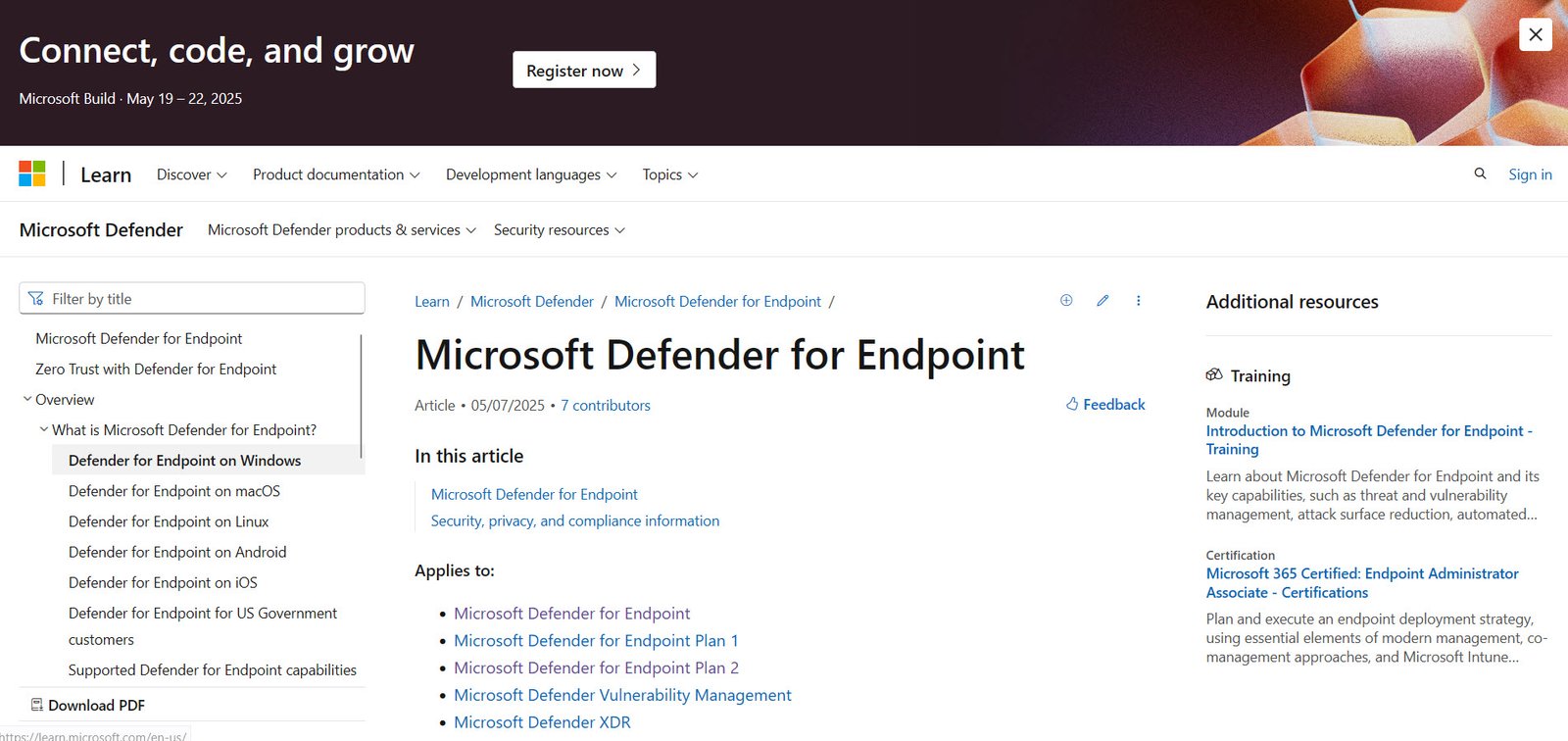In today’s digital world, protecting your personal and business data is more important than ever. Every time we go online—whether it’s shopping, checking emails, or working—we face threats like viruses, malware, and hackers. That’s why cybersecurity tools are essential.
There are many antivirus and internet security software options available. Each offers different features, pricing, and protection levels. In this article, we compare some of the top cybersecurity tools: Norton, McAfee, Bitdefender, and a few others. This will help you choose the one that suits your needs best.
- Norton 360
- McAfee Total Protection
- Bitdefender Total Security
- Kaspersky Internet Security
- Avast One
- Windows Defender (Microsoft Defender Antivirus)
1. Norton 360
Norton has been a leader in the antivirus world for years. Their Norton 360 suite offers a wide range of tools beyond just antivirus protection.
Key Features:
- Real-time threat protection
- Secure VPN
- Password manager
- Dark web monitoring
- Cloud backup (up to 75 GB depending on plan)
- Parental controls
Pros:
- Strong virus protection
- Easy to use
- Extra tools like VPN and backup
Cons:
- Can be a bit expensive
- Uses more system resources on older computers
Best For: Families and individuals who want all-in-one protection.

2. McAfee Total Protection
McAfee is another well-known name in digital security. It offers antivirus tools along with performance optimization and online privacy features.
Key Features:
- Antivirus and anti-malware
- Firewall
- File shredder
- Identity theft protection
- Safe web browsing
Pros:
- Covers multiple devices
- Easy-to-use interface
- Good value for large families
Cons:
- Some features only work on certain platforms
- Can slow down older PCs
Best For: Households with many devices and users.

3. Bitdefender Total Security
Bitdefender is highly rated for its strong malware protection and light system impact. It’s fast and doesn’t use much memory.
Key Features:
- Real-time data protection
- Anti-phishing and anti-fraud
- Ransomware protection
- VPN (limited use)
- Device optimization tools
Pros:
- Excellent malware detection
- Very light on system resources
- Affordable yearly plans
Cons:
- VPN is limited unless you pay extra
- Interface may be complex for beginners
Best For: Tech-savvy users looking for strong protection and performance.

4. Kaspersky Internet Security
Kaspersky is another top player in the cybersecurity field. Despite past concerns about its origin, it continues to receive high scores for malware detection.
Key Features:
- Malware and spyware protection
- Safe money browser for online shopping
- Webcam and microphone protection
- Parental controls
- VPN (limited)
Pros:
- Strong protection rates
- Good privacy tools
- Clean, simple interface
Cons:
- VPN and password manager features are limited unless upgraded
- Still banned on some U.S. government networks
Best For: Users focused on privacy and safe online banking.

5. Avast One
Avast offers a free version and premium plans. The free version already provides good protection, but the paid plans include advanced features.
Key Features:
- Antivirus and anti-malware
- VPN
- Data breach alerts
- System clean-up tools
- Email protection
Pros:
- Strong free version
- Good design and usability
- Extra privacy features
Cons:
- Past issues with user data privacy (now improved)
- Some features locked behind premium plans
Best For: Budget users looking for solid free antivirus.

6. Windows Defender (Microsoft Defender Antivirus)
This is the built-in antivirus tool for Windows 10 and 11. It’s free and offers basic protection.
Key Features:
- Real-time antivirus and anti-malware
- Built-in firewall
- Ransomware protection
- Browser and app protection
Pros:
- Free with Windows
- Light on system
- Good enough for basic use
Cons:
- Lacks advanced features like VPN, identity protection
- Not ideal for high-risk users
Best For: Everyday users who want basic protection without spending extra.

Side-by-Side Comparison
| Feature/Tool | Norton 360 | McAfee | Bitdefender | Kaspersky | Avast | Windows Defender |
|---|---|---|---|---|---|---|
| Antivirus Protection | ✔️ | ✔️ | ✔️ | ✔️ | ✔️ | ✔️ |
| VPN Included | ✔️ (unlimited) | ✔️ | ✔️ (limited) | ✔️ (limited) | ✔️ | ❌ |
| Password Manager | ✔️ | ✔️ | ✔️ | ✔️ | ✔️ | ❌ |
| Cloud Backup | ✔️ | ❌ | ❌ | ❌ | ❌ | ❌ |
| Device Optimization | ✔️ | ✔️ | ✔️ | ❌ | ✔️ | ❌ |
| Price Range | $$ | $$ | $ | $ | Free-$ | Free |
Final Thoughts
In the end, no tool is perfect, but using any of these trusted options is far better than going online without protection. Also, remember that good cybersecurity isn’t just about software—it’s about safe habits too, like avoiding suspicious links and keeping your software updated.



